Submission Deadline
28 February 2026
Judging
Date
24 & 25 March 2026
Winners Announcement
22 April 2026
28 February 2026
24 & 25 March 2026
22 April 2026
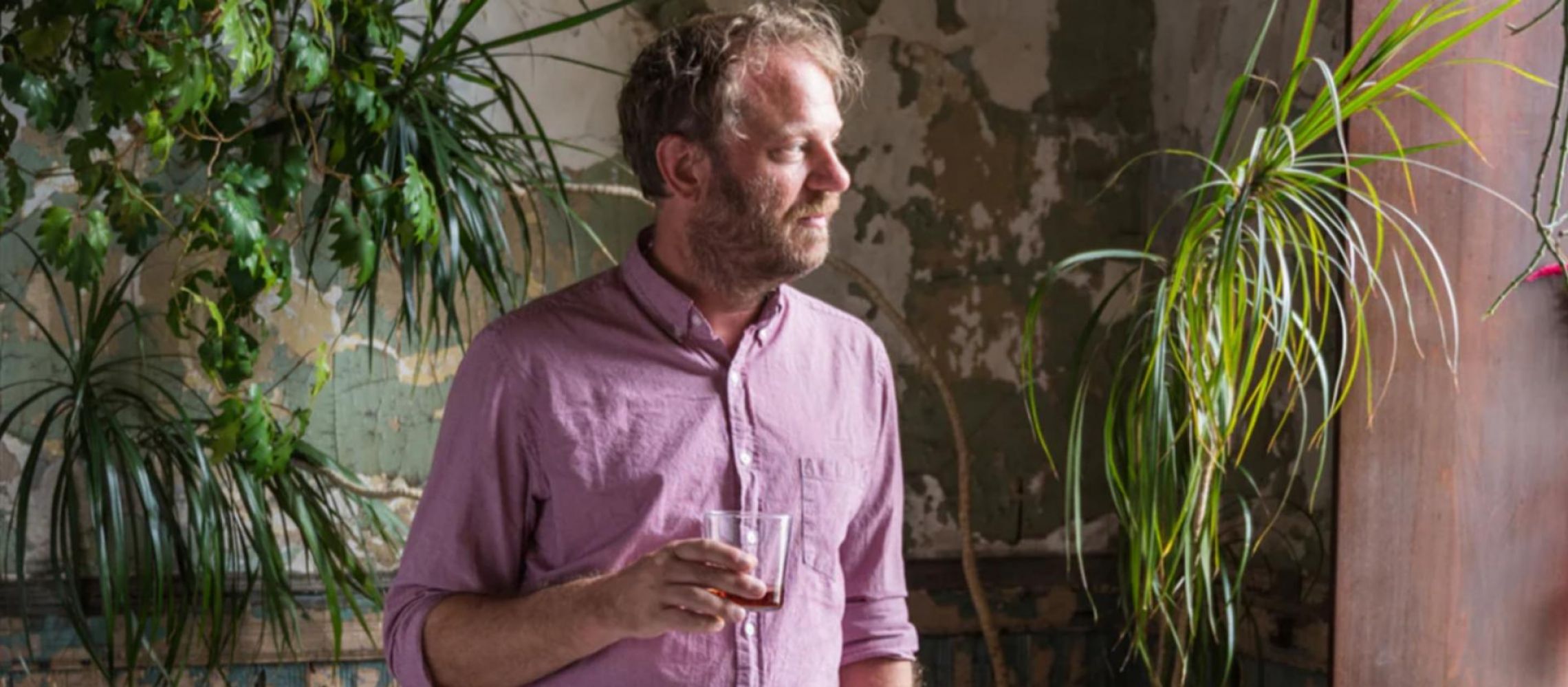
London Spirits Competition spoke to King County Distillery’s Colin Spoelman who dives deep into what makes his 15-year-old whisky distillery one of the finest in New York and why their crafted whiskies are the best.
I grew up in Eastern Kentucky, a more moonshine country than bourbon, but Kentucky is the epicentre of distilling in the United States. I realised it was part of my cultural inheritance, both the legal and the illicit whisky-making. When New York passed a farm distillery bill in 2009, it seemed like a fortuitous time to begin distilling. And it was. Now 14 years later, we are distributed in 30 states and 6 countries.
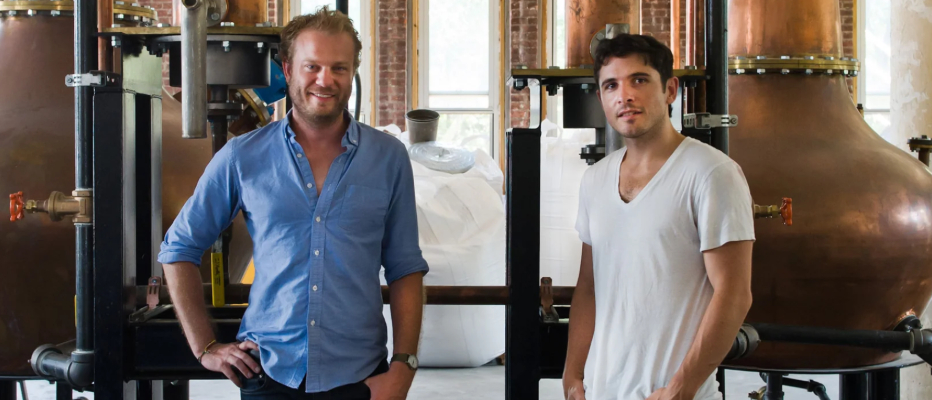
Image Title and Credits: Co-founders Colin Spoelman and David Haskell at Kings County Distillery
I'm a distiller and co-founder of Kings County Distillery. I am basically the general manager of a medium-sized whisky distillery in Brooklyn, so I am in charge of distillation, maturation, bottling, sales, and marketing to 30 states and 6 countries. Lately, it is more business than distilling as we have a great team so instead of worrying about the product I can focus my energy on telling the brand story.
I think it's a mix of being a gourmand, a raconteur, a comic, a scientist, an artist, and a historian. Everyone's approach is a little different, but there are technical, sensory, and sales qualities that all contribute to my impression of the best distillers.
While salespeople are an important part of the team, only a distiller can really get to the specifics of a drink. It is no surprise that the golden age of American whisky was started by great distillers/salesmen from Kentucky: Jimmy Russel, Booker Noe, and others who brought the technical process to the fans. I think it inspired a lot of smaller distillers and drinkers alike to understand whisky as more than a product in an advertisement.
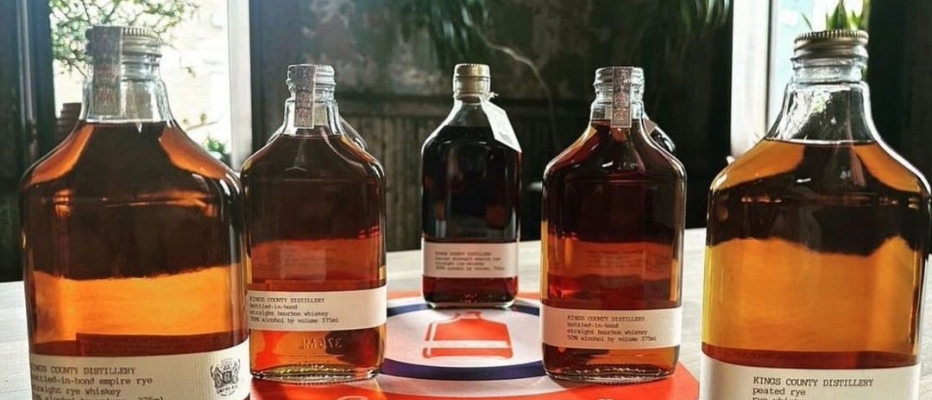
Image Title and Credits: Kings County Whisky Collection
A good distiller is really a lot of things: a plumber, a process engineer, a handyman, a scientist, an analyst. One has to understand the science, craft, and also the culture of distilling, since it is often the distiller that creates the products that lead the market. Having a marketing person tell the distiller what to do is usually a way to get bad whisky.
Everybody thinks they make the best whisky, so making a standout pitch is always the challenge. It can be beneficial to come up with clear distinctions, like ingredients, process and equipment. Most people have come to judge whiskies by their age and the proof on the bottles, however, that is a remarkably narrow way to evaluate a whisky. A distiller's job is to not only make great whisky but communicate it to others who can pass it along to the drinker, so they have a richer appreciation of what went into the spirit.
Also read: Elevate Your Winter: 10 Bourbons to Try for an Unforgettable Season
I can take this opportunity to plug my books: The Kings County Distillery Guide to Urban Moonshining, Dead Distillers and Bourbon Drinker's Companion – all published by Abrams. But as a resource, a book titled Making Pure Corn Whisky was crucial to my education as a distiller.
We are both a distillery and a brand, and it is our guarantee to the consumer that we never buy anyone else's whisky for our label. That is important to us and lets you know that every bottle of Kings County is truly singular. It has been a constant battle for us in the market, distinguishing the whisky that we make, from other "local" brands that merely buy whisky from generic sources. That can be a fine strategy, but it's not ours.
Ryan Ciuchta and Nathan Reinke do all the blending for Kings County, and I do believe our very robust blending program distinguishes our whiskies. Each barrel is nosed and assembled into a variety of blends and configurations, highlighting what a blender can do with a variety of whisky types and their ability to recognise excellence. Most American whisky brands treat the distiller as the "author" of the whisky, but we believe in the Scotch mindset that it is a two-hander with a distiller and a blender working together.
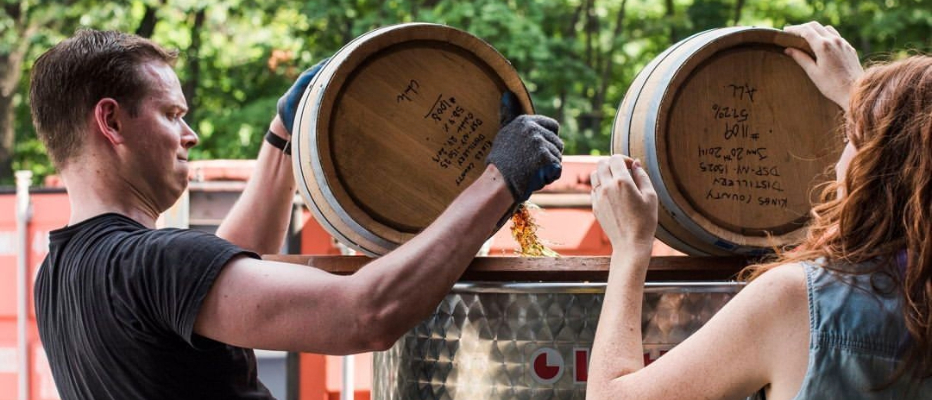
Image Title and Credits: Blender Ryan Ciuchta at Kings County Distillery (photo by Valery Rizzo)
We send our spent grain to a commercial compost facility. All of our barrels get re-used by brewers and other distillers and lead a very long and happy life. A tree's wood is best used for 100 years by making it into a whisky barrel.
Also read: Meet Alessandro Melfi: The Sustainable Mixologist at The Shoreditch Arts Club
We mostly limit carbon by buying local grain and delivering 2/3 of what we produce in the tri-state area. We eliminate middlemen (and extraneous deliveries) by being our distributor in New York. We buy organic ingredients, and all our whiskies are non-GMO.
[[relatedPurchasesItems-63]]
I had been advised to sell deep into our home market which we did, but I also think it's important to have a toehold in a lot of places. If there is a whisky library in any American city, I want to be in the collection. American whisky is a rapidly evolving landscape and we want to be a part of the conversation wherever it is happening.
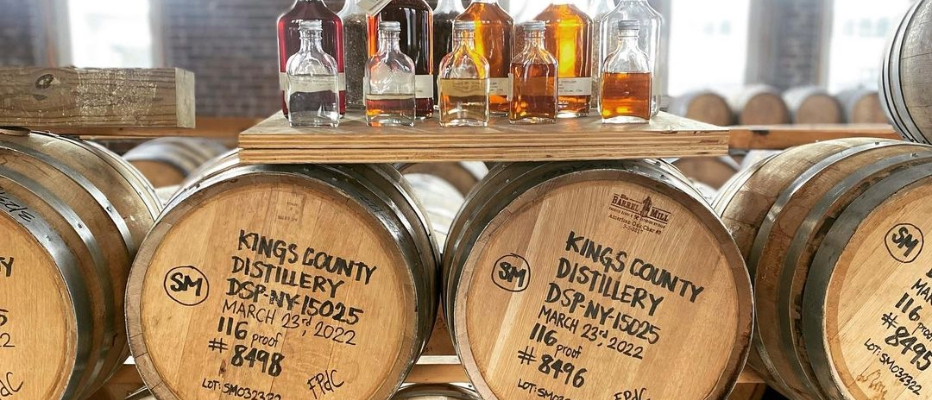
Image Title and Credit: Kings County Distillery barrel room
While single barrels have been dominating sales for a long time, I think there is less interest in them as consumers are catching on to the fact that too many distillers treated the single barrels merely as single barrels and not special barrels. Kings County Distillery always preselects our single barrels, but not every brand is the same way. I do see a trend toward lighter spirits, which happens after brown spirit mania. That might mean lighter and blended whiskies.
Header image source: Kings County Distillery
Related links
Indian Whisky: A Rising Star in the Global Market
Joshua Goins on Mastering the Art of Distilling and Building a Brand
Show your spirits where it matters. Get your products tasted by top bartenders, buyers and experts at the London Competitions — enter now.